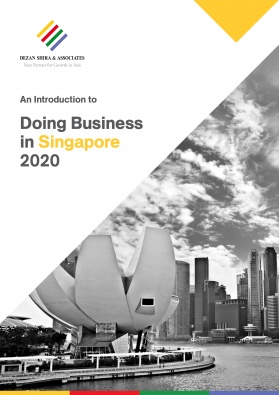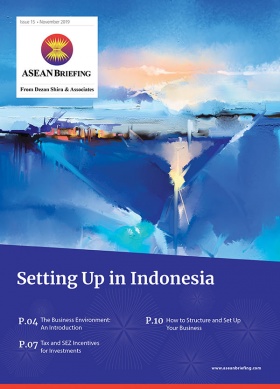The 27th ASEAN Regional Forum: Salient Features
- ASEAN conducted the 27th ASEAN Regional Forum (ARF), which is a platform to discuss any political and security issues impacting the bloc.
- The major issues discussed in the ARF was the situation in the South China Sea, recognizing the importance of ICT in mitigating the impact caused by COVID-19, and upholding peace in the Korean Peninsula.
- ASEAN members remain committed to enhancing integration in the bloc and with its partners, as well as fighting the spread of the coronavirus.
The Association of Southeast Asian Nations (ASEAN) conducted its 27th ASEAN Regional Forum (ARF) via video conference on September 12, 2020, which was chaired by Pham Binh Minh, Deputy Prime Minister and Minister of Foreign Affairs of Vietnam.
The ARF was established in 1994 to provide a platform to foster dialogue on political and security issues and to contribute to efforts towards confidence-building and preventive diplomacy in the region.
The ARF is comprised of 27 members:
- The 10 ASEAN member states;
- The 10 ASEAN dialogue partners (Australia, Canada, China, the EU, India, Japan, New Zealand, Republic of Korea, Russia, United States);
- Bangladesh;
- Democratic People’s Republic of Korea;
- Mongolia;
- Pakistan;
- Sri Lanka;
- East Timor; and
- Papua New Guinea (ASEAN observer).
Working to tackle COVID-19
The ARF reaffirmed their commitment to tackling the pandemic and Ministers emphasized the importance of bilateral and regional cooperation with the WHO and the United Nations. The Ministers of ARF also welcomed the WHO’s initiative to establish the Independent Panel for Pandemic Preparedness and Response, which evaluates each country’s response to the pandemic, and the lessons learned from such case studies.
Finally, Ministers attending the ARF pledged to keep the markets open to maintain food security and preserve supply chain connectivity, in addition, to prevent further disruption to sustainable economic activities in the region.
Promoting stability in the South China Sea
Ministers reaffirmed the need to maintain the security, stability, and freedom of navigation above the South China Sea, with the implementation of the 2002 Declaration on the Conduct of Parties in the South China Sea.
This is a non-binding agreement signed by the 10 members of ASEAN and China, which states that all parties will uphold regional rules to deepen maritime cooperation, control disputes, and jointly maintain peace and stability in the South China Sea.
With relations continuously improving between ASEAN states and China, the ARF considers it imperative that any practical measures to reduce tensions should be adopted. There were concerns expressed in the ARF by certain Ministers with regards to serious incidents in the area, such as land reclamations, which could undermine peace and erode trust for countries in the region.
The Ministers emphasized the need to resolve such issues through non-militarized means and through self-restraint to not escalate tensions further.
Recognizing the increasing importance of ICT
Ministers have recognized that to mitigate the impact of the pandemic, ASEAN nations, as well as countries around the world, have increased their dependence on ICT tools to aid economic growth.
The region already has over 400 million active internet users and the digital landscape presents unique opportunities for foreign investors, in particular, in new sectors like telemedicine, telecommuting, and online education.
In addition, changing consumer behavior caused by the pandemic has led to growing transactions through digital commerce. In a report conducted by Google, Temasek Holdings, and Bain & Co, Southeast Asia’s internet economy was valued at US$100 billion in 2019, which could rise to US$300 billion by 2025. Indonesia, the largest market in the region, is predicted to have its internet economy valued at US$130 billion by 2025.
The Ministers underlined the need to strengthen cross-sectoral cooperation in the ICT sector especially in handling cyber threats. The ARF will conduct the ARF Inter-Sessional Meeting on ICTs Security in Japan (the date is yet to be announced) to discuss the issue of cybersecurity solutions for ASEAN.
Upholding peace in the Korean Peninsula
The ARF stressed the importance of upholding peace in the Korean Peninsula and to realize the efforts to achieve complete denuclearization of the Democratic People’s Republic of Korea and the establishment of permanent peace.
The Ministers reiterated the importance of full implementation of the Panmunjom Declaration and the Pyongyang Joint Declaration between the Republic of Korea and the Democratic People’s Republic of Korea. The Ministers are ready to have the ARF play a constructive role in promoting platforms for peaceful dialogue between the two countries.
Strengthening ASEAN’s outlook
The Ministers are eager to further strengthen and improve ASEAN’s in areas such as good governance, rules-based framework, transparency, and inclusivity. This will enable ASEAN states to develop concrete partnerships to enhance maritime cooperation, connectivity, and achieve the UN’s 2030 Sustainable Development Goals.
About Us
ASEAN Briefing is produced by Dezan Shira & Associates. The firm assists foreign investors throughout Asia and maintains offices throughout ASEAN, including in Singapore, Hanoi, Ho Chi Minh City and Jakarta. Please contact us at asia@dezshira.com or visit our website at www.dezshira.com.







